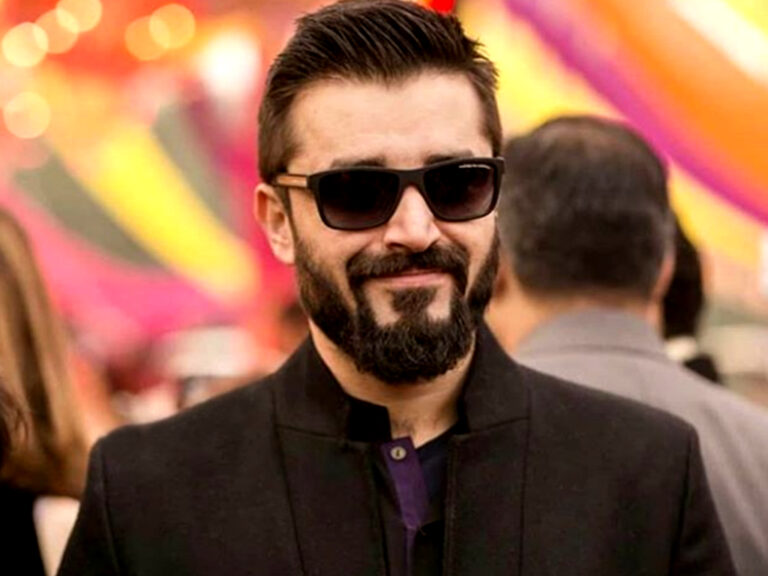Pas-e-Deewar Drama Review: Airing in 2011, Pas-e-Deewar (Behind the Wall) captivated Pakistani audiences with its poignant exploration of forbidden love, the complexities of family dynamics, and the devastating consequences of societal pressures. Directed by Mehreen Jabbar and penned by Mona Haseen, the serial delves into the lives of two families whose destinies intertwine in a web of unspoken desires, social expectations, and heartbreaking sacrifices. This review dissects Pas-e-Deewar, analyzing its characters, themes, and enduring significance.

A Story of Love Divided by Walls and Social Barriers
Pas-e-Deewar unfolds around two neighboring families – the affluent Khan family and the financially struggling Ahmadi family. The narrative centers on Wajdaan (Sanam Baloch), a beautiful and intelligent young woman from the Ahmadi family, and Fahad (Fawad Khan), the rebellious son of the wealthy Khans. Despite their contrasting social backgrounds, Wajdaan and Fahad develop a deep connection fueled by stolen glances and secret conversations across the dividing wall.
Their forbidden love blossoms, but societal pressures and the disapproval of both families threaten to tear them apart. Fahad’s family expects him to marry a woman from their social circle, while Wajdaan’s family fears the social stigma attached to an inter-class marriage.
The narrative delves into the emotional turmoil faced by Wajdaan and Fahad as they navigate societal pressures, family obligations, and the yearning for a life together. Sacrifices are made, promises are broken, and lives are forever changed as the consequences of their forbidden love unfold.
Characters: A Tapestry of Love, Duty, and Hidden Desires
The strength of Pas-e-Deewar lies in its characters, each grappling with their own desires and societal constraints:
-
Wajdaan: Sanam Baloch delivers a powerful performance as Wajdaan. She portrays the character’s unwavering love, unwavering spirit, and the immense sacrifice she makes for the sake of family and societal harmony. Wajdaan’s journey resonates with viewers who have faced similar situations.
-
Fahad: Fawad Khan portrays Fahad’s internal conflict – a man torn between his love for Wajdaan and the expectations placed upon him by his family. Fahad’s character compels viewers to question the role of family duty and societal norms in shaping individual choices.
-
Supporting Characters: The serial features a well-developed cast of supporting characters. Fahad’s domineering mother, Wajdaan’s supportive sister, and the family patriarchs on both sides add depth to the narrative and showcase the generational divide regarding social norms.
Themes: A Reflection of Societal Struggles
Pas-e-Deewar tackles various social issues prevalent in Pakistani society:
-
Class Divide and Inter-Class Marriages: The serial explores the social stigma attached to inter-class marriages. The contrasting realities of the Khan and Ahmadi families highlight the societal barriers that can hinder love and happiness.
-
Forbidden Love: The narrative portrays the enduring power of love, even when faced with societal disapproval. Wajdaan and Fahad’s story compels viewers to question the constraints placed upon love in the name of social norms.
-
Family Honor and Sacrifice: The serial delves into the complexities of family dynamics in Pakistani society. The concept of family honor and the pressure to prioritize it over personal happiness is a central theme, explored through the characters’ choices and sacrifices.
-
Suppression of Female Desire: Pas-e-Deewar subtly critiques the societal limitations placed on women’s choices. Wajdaan’s desire to pursue love is overshadowed by societal expectations, highlighting the struggles women face in expressing their emotions.
A Lasting Impact: Beyond Entertainment
Pas-e-Deewar’s impact goes beyond mere entertainment. It sparked conversations about critical social issues:
-
Importance of Individual Choice: The serial encourages viewers to question the weight given to societal expectations in choosing a life partner. Wajdaan and Fahad’s story highlights the importance of advocating for individual freedom in matters of love and marriage.
-
Challenging Societal Stigma: Pas-e-Deewar subtly challenges the stigma attached to inter-class marriages. By showcasing the genuine love between Wajdaan and Fahad, the serial encourages viewers to consider love as a basis for marriage, regardless of social background.
-
Promoting Open Communication: The serial underscores the importance of open communication within families. The misunderstandings and unspoken feelings between characters highlight the need for honest conversations, particularly within parent-child relationships.
Share this content:













+ There are no comments
Add yours